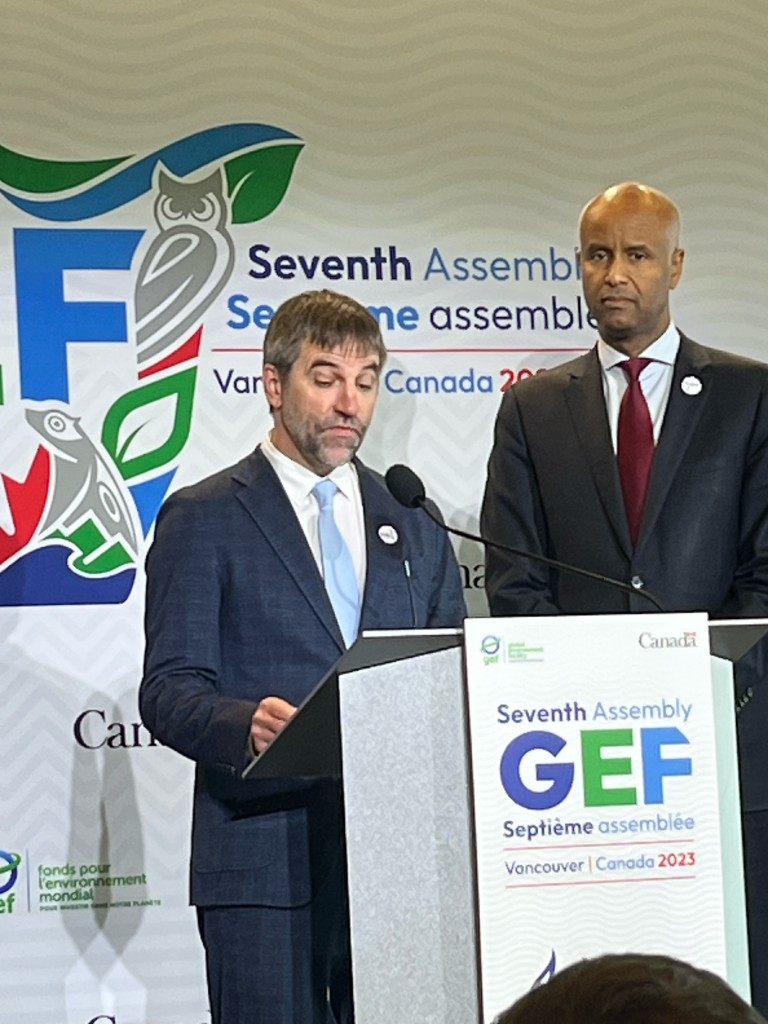By Pia Araneta
VANCOUVER, Canada — The Global Environmental Facility (GEF) gathered in Vancouver, B.C., to approve the new Biodiversity Framework Fund, the first of its kind exclusively dedicated to the protection of endangered species and their ecosystems around the globe.
The new Fund has been designed to mobilize and accelerate investment in the conversation and sustainability of wild species and ecosystems, whose health is under threat from wildfires, flooding, extreme weather and human activity.
The creation and implementation of the fund was done in record time, following the 15th meeting of the Convention on Biological Diversity (COP15) just eight months prior.
” Countries have come together in Vancouver to turn things around for the health of the planet and its people. This is a hugely positive movement that will be remembered far into future. We have shown at the Seventh GEF Assembly that even in difficult conditions–with wildfire smoke as our backdrop– we can move forward to build a more biodiverse planet for everyone’s benefit,” said Carlos Manuel Rodriguez, CEO and Chairperson of the GEF.
As the world continues to experience the triple crises of climate change, pollution and biodiversity loss–with smoggy skies currently obscuring the Vancouver skyline–the urgency of action was felt by the representatives of 185 countries present at GEF.
“There is no time to lose. We need to act and to act immediately,” said Sandra Vilardy, Columbia’s vice minister of environmental policy. “The responsibility in regard to children, women, girls and vulnerable communities is of great importance.”
In addition to the $350 million Canada pledged in December to support developing countries in conserving biodiversity, another $200 million was added to the GBF fund on Thursday.

Global Environment Facility chief executive officer and chairperson Carlos Manuel Rodriguez urged countries to ramp up biodiversity funds. by Imelda Abano
“We need to keep the momentum going,” said Steven Guilbeault, Canada’s minister of environment and climate change.
The United Kingdom echoed this sentiment by adding $14.7 million dollars.
The framework of the fund has been praised for its inclusive structure, focusing on initiatives for youth, women and Indigenous communities.
Of the $200 billion they hope to reach by 2030, at least 20 per cent will be allocated to Indigenous-led initiatives.
Lucy Mulenkei, co-chair of the international Indigenous forum on biodiversity, said the support towards Indigenous Peoples is a “clear recognition of the fundamental role they have had for generations protecting biodiversity.”
Additionally, the fund will prioritize support for developing countries and states, who will receive more than a third of the fund’s resources.
While Canada is home to significant biodiversity and natural areas, the vast majority of the world’s biodiversity is outside of our borders, said Canada’s minister of international development, Ahmed Hussen.
” The new Fund will play a key role in addressing biodiversity loss. It will address it in developing countries, where the impacts of nature loss are highest; it will address it in a gender-responsive manner, including through cross-sectoral partnerships. It will address the collaboration with Indigenous Peoples, the original guardians of the lands and seas,” Hussen said.
Latest posts by EnviroNewsph (see all)
- Global fund aimed at protecting nature and accelerate investment in conservation, launched in Canada - August 25, 2023
- Why ‘loss and damage’ is the most bitterly fought-over issue at COP27 climate talks? - November 18, 2022
- U.S. hands over P2.3M in equipment and wildALERT system to PH to protect wildlife - December 16, 2020
